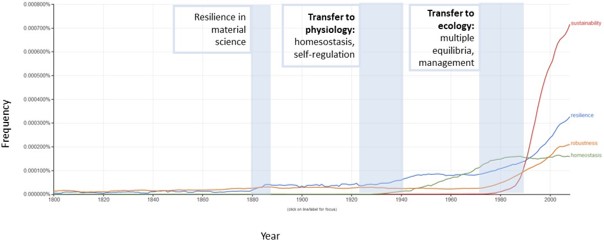Interdisciplinary Teaching in the Field of Resilient Energy Systems: Experiences with Expert Lecture Series Combined with Workshops
Abstract
The increased complexity of renewable energy systems derives in uncertain and vulnerable systems behavior, making necessary for energy experts to understand and apply resilience studies with interdisciplinary approaches. With this aim, we have designed a postgraduate course on resilience of energy systems, pursuing an “exchange interdisciplinarity” level that enables students to (i) become aware of competing approaches in terms of methods and theories stemming from different disciplines, and (ii) to critically argue on the suitability of presented concepts for energy systems design and management. The course aimed at achieving a sound level of exchange interdisciplinarity as defined in relevant literature. We chose the following specific teaching methods and didactic items to facilitate this aim and address the different challenges of interdisciplinary education identified from the literature: fundamental introduction (FI), expert interviews and deepening workshops. The FI aimed at providing a sound common basis for understanding the perspectives and approaches from different disciplines. The expert lecture series exposed students to the broadness of state-of-the-art approaches existing in resilience research for energy systems, while the deepening workshops allowed students to develop a deep and critical appraisal of the disciplinary approaches and their relations. The course impact is evaluated through the standard questionnaire for teaching evaluation from the University of Oldenburg. The evaluation shows that the course fostered a critical and interdisciplinary thinking, with a high and interactive participation through the use of multiple didactic measures. This is supported by the high satisfaction of the students, the high level of engagement and academic performance and the qualitative perception from the lecturers. Topics of similar complexity or interdisciplinarity in energy higher education, such as sustainability, technology assessment or energy systems analysis could also benefit from such a course design.
References
Bradbeer, J. (1999). Barriers to Interdisciplinarity: Disciplinary Discourses and Student Learning. Journal of Geography in Higher Education, 23(3), 381-396. https://doi.org/10.1080/03098269985326
Brand, U., & Arnim, von G. (2015). Transformation toward a Secure and Precaution-Oriented Energy System with the Guiding Concept of Resilience—Implementation of Low-Exergy Solutions in Northwestern Germany. Energies, 8(7), 6995-7019. https://doi.org/10.3390/en8076995
Carpenter, S., Brian, W., John, A., & Nick, A. (2001). From Metaphor to Measurement: Resilience of What to What? Ecosystems, 4(8), 765-781. https://doi.org/10.1007/s10021-001-0045-9
Catherine, L., Laura, M., Justyna, B., & Ann, K. (2015). Interdisciplinary Provision in Higher EducationCurrent and Future Challenges. York: Higher Education Academy. Retrieved from https://s3.eu-west-2.amazonaws.com/assets.creode.advancehe-document-manager/documents/hea/private/interdisciplinary_provision_in_he_1568037335.pdf
Creswell, J. W. (2003). Research Design, Qualitative, Quantitative and Mixed Methods Approaches. SEcond Edi. SAGE Publications.
Davies, M., & Marcia, D. (2010). Chapter 1 Interdisciplinary Higher Education. In, 3-28. https://doi.org/10.1108/S1479-3628(2010)0000005004
DeZure, D. (2017). Interdisciplinary Pedagogies in Higher Education. In, edited by Robert Frodeman. Vol. 1. Oxford University Press. https://doi.org/10.1093/oxfordhb/9780198733522.013.45
Fischer, L., Jan-Menno, M., Eric, M. S. P. V., & Martin, T. (2018). Adversarial Resilience Learning - Towards Systemic Vulnerability Analysis for Large and Complex Systems. November.
Folke, C. (2006). Resilience_The Emergence of a Perspective for Social-Ecological Systems Analyses. Global Environmental Change, 16(3), 253-267. https://doi.org/10.1016/j.gloenvcha.2006.04.002
Goldthau, A. (2014). Rethinking the Governance of Energy Infrastructure: Scale, Decentralization and Polycentrism.” Energy Research & Social Science, 1(March), 134-140. https://doi.org/10.1016/j.erss.2014.02.009
Haehne, H., Katrin, S., Samyak, T., Joachim, P., & Stefan, K. (2019). Propagation of Wind-Power-Induced Fluctuations in Power Grids.” Physical Review E., 99(5), 050301. https://doi.org/10.1103/PhysRevE.99.050301
Hamborg, S., Jasper, N. M., Klaus, E., & Thorsten, R. (2019). Rethinking Resilience: A Cross-Epistemic Resilience Framework for Interdisciplinary Energy Research.
Holling, C. S. (1973). Resilience and Stability of Ecological Systems. Annual Review of Ecology and Systematics, 4(1), 1-23. https://doi.org/10.1146/annurev.es.04.110173.000245
Holling, C. S. (2001). Understanding the Complexity of Economic, Ecological, and Social Systems. Ecosystems, 4(5), 390-405. https://doi.org/10.1007/s10021-001-0101-5
Kim, H., Sang, H. L., Jörn, D., & Seung-Woo, S. (2018). Multistability and Variations in Basin of Attraction in Power-Grid Systems. New Journal of Physics, 20(11), 113006. https://doi.org/10.1088/1367-2630/aae8eb
Labanca, Nicola (Ed. 2017). Complex Systems and Social Practices in Energy Transitions. Green Energy and Technology. Cham: Springer International Publishing. https://doi.org/10.1007/978-3-319-33753-1
Roege, P. E., Zachary, A. Collier, James, Mancillas, John, A. McDonagh, & Igor, L. (2014). Metrics for Energy Resilience. Energy Policy, 72(September), 249-256. https://doi.org/10.1016/j.enpol.2014.04.012
Ruth, Matthias, & Stefan, Goessling-Reisemann (2019). Handbook on Resilience of Socio-Technical Systems. Edward Elgar Publishing. https://doi.org/10.4337/9781786439376
Sarah, F., Christopher, C., & Jamie, H. (2019). Interdisciplinarity in Higher Education: The Challenges of Adaptability.” In Mentorship, Leadership, and Research: Their Place within the Social Science Curriculum, edited by Jamie Halsall Michael Snowden, 129-146. Springer International Publishing AG.
Schuhmacher, E. F. (1999). Small Is Beautiful - Economics as If People Mattered.
Selina, B. A. (2017). Das Energiesystem Resilient Gestalten- Maßnahmen Für Eine Gesicherte Versorgung. Mai 2017 S. acatech – Deutsche Akademie der Technikwissenschaften e. V. (Federführung) Geschäftsstelle München, Karolinenplatz 4, 80333 München | www.acatech.de Deutsche Akademie der Naturforscher Leopoldina e. V. – Nationale Akademie der Wissenschaften – Jägerberg 1.
Stefan, Gößling-Reisemann (2016). Resilience Preparing Energy Systems for the Unexpected. In IRGC Resource Guide on Resilience, edited by Marie-Valentine Florin and Igor Linkov, 73-80. Lausanne: EPFL International Risk Governance Center. v29-07-2016. https://doi.org/10.5075/epfl-irgc-228206
Stefan, Gößling-Reisemann, Hans, D. H., & Pablo, T. (2018). The Resilience Concept: From Its Historical Roots to Theoretical Framework for Critical Infrastructure Design.
Walker, B., & David, S. (2012). Resilience Thinking Sustaining Ecosystems and People in a Changing World. Island Press.
Walker, B., Hollin, C. S., Stephen, C., & Kinzig, A. (2004). Resilience, Adaptability and Transformability in Social-Ecological Systems. ECOLOGY AND SOCIETY 9. https://doi.org/10.5751/ES-00650-090205
Wyss, R., Susan, Mühlemeier, & Claudia, Binder (2018). An Indicator-Based Approach for Analysing the Resilience of Transitions for Energy Regions. Part II: Empirical Application to the Case of Weiz-Gleisdorf, Austria. Energies, 11(9), 2263. https://doi.org/10.3390/en11092263


This work is licensed under a Creative Commons Attribution 4.0 International License.
Copyright for this article is retained by the author(s), with first publication rights granted to the journal.
This is an open-access article distributed under the terms and conditions of the Creative Commons Attribution license (http://creativecommons.org/licenses/by/4.0/).








1.png)

















